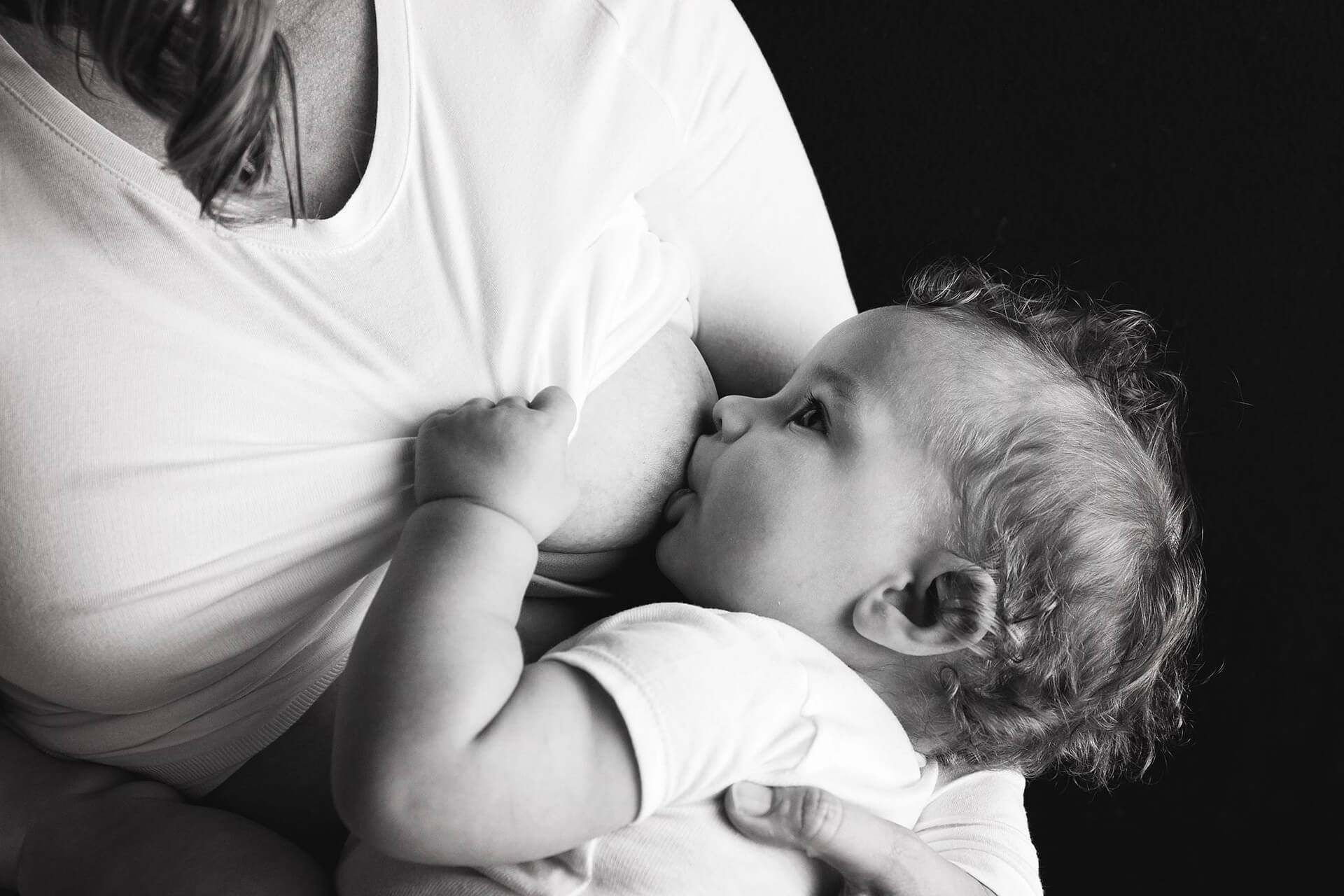Pros and Cons of Breastfeeding

Breastfeeding is fundamental for babies and a very important decision when it comes to their health. That’s why we’ll discuss some of the pros and cons of breastfeeding below.
The American Academy of Pediatrics (AAP), the American Medical Association (AMA), the American Dietetic Association (ADA), and the World Health Organization (WHO) recommend breast milk as the best diet for babies, because it helps counteract infections, prevent allergies and protect against chronic conditions.
But everything has advantages and disadvantages. Keep reading to discover some of the pros and cons of breastfeeding.
Breastfeeding is good for your baby
Breast milk has many positive effects on your baby’s diet. It is totally recommended for them and practically vital for their health.
Among the many positive points of breast milk:
- It is the best nutritional option for babies. Some experts consider breast milk as the best option for our babies to obtain nutrients.
- It helps fight infections and other conditions. Breastfed babies get fewer infections, because breast milk strengthens the child’s immune system. This also helps to reduce infections, such as ear infections, diarrhea, respiratory infections and meningitis.
- It is very nutritious and improves digestion. Babies who receive breast milk have less difficulty with digestion, and it also has many vitamins and minerals needed by the newborn.
- Breast milk has different flavors. Because we have to eat various foods throughout the day in order to produce breast milk, it tends to have different flavors, so the baby gets introduced to different tastes.
- Some studies suggest breast milk leads to smarter babies, with babies who are fed breast milk having slightly higher intellectual coefficients than those fed artificial milk.
- Breastfeeding is also beneficial to the mother. If a mother feeds her baby breast milk, she will lose calories, feel more confident and, according to some studies, will even enjoy a reduced risk of breast cancer.
- Breastfeeding strengthens the mother-child bond. Some mothers say that skin-to-skin contact helps establish a special connection with their little one.

Breastfeeding also has cons
Although breast milk has many important benefits, it also has its bad side. Here are some cons:
- It can generate some pain and discomfort. Breastfeeding can cause discomfort at first because the mother may feel some pain while the baby suckles. This pain should not last more than a minute at each feeding, but if there is a constant pain that does not calm down, it could be an infection.
- Mothers must maintain a proper diet when breastfeeding. For example, breastfeeding mothers should not eat fish rich in mercury.
- Mothers have less flexible schedules. If at any point you cannot breastfeed your baby, you can leave your partner or a relative with a bottle and he can be fed without a problem.
- More frequent feedings. Babies who usually drink formula milk require fewer feedings because it is less easy to digest than breast milk.
- Mothers must be concerned about what they eat. If you are not breastfeeding your baby, you do not have to worry too much about it.

Maternal love is always great, but it becomes sublime when mixed with admiration for the beloved child.
-Angel Ganivet-
Some recommendations
- Mothers are advised to continue breastfeeding until the baby is at least 12 months old, but can continue even longer if they wish.
- Formula milk is also a healthy alternative. It provides babies with the nutrients they need to grow healthy.
- Make your own decision about whether to breastfeed your baby. It is a very personal choice, and it is important to consider the pros and cons of breastfeeding.
As we discussed earlier, the decision to feed your baby should primarily be yours. The important thing is to be informed and to decide what is best for your baby’s health.
All cited sources were thoroughly reviewed by our team to ensure their quality, reliability, currency, and validity. The bibliography of this article was considered reliable and of academic or scientific accuracy.
- Jost T., Lacroix C., Braegger C., Chassard C., Impact of human milk bacteria and oligosaccharides on neonatal gut microbiota establishment and gut health. Nutr Rev, 2015. 73 (7): 426-37.
- Plaza Díaz J., Fontana L., Gil A., Human milk oligosaccharides and immune system develpment. Nutrients, 2018.
- May PA., Hasken JM., Blankeship J., Marais AS., et al., Breastfeeding and maternal alcohol use: prevalence and effects on child outcomes and fetal alcohol spectrum disorders. Reprod Toxicol, 2016.
This text is provided for informational purposes only and does not replace consultation with a professional. If in doubt, consult your specialist.
